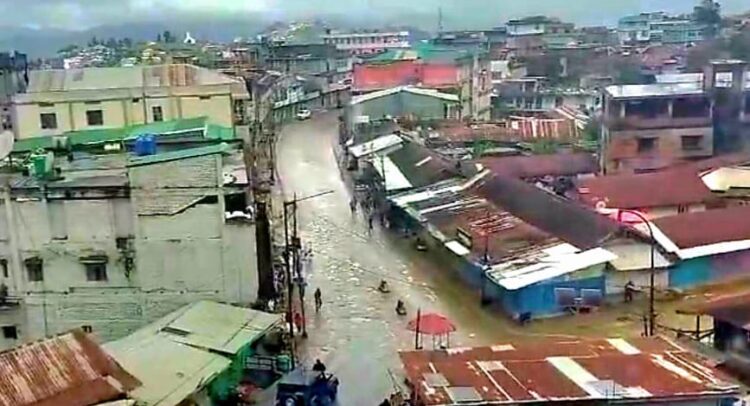Asem Bhakta, Special Correspondent North East
Ukhrul: (Waari Singbul Network) The proliferation of firearms in Manipur has dramatically transformed the state’s social dynamics, especially since the ethnic violence erupted between the Kuki and Meitei communities on May 3rd. The surge in gun ownership is now being felt in areas like Ukhrul District, where even longstanding land disputes, once resolved through dialogue, have begun to take on a violent dimension.
The October 2nd incident that left three dead, including a Manipur Rifles personnel and several others sustaining gunshot wounds in Ukhrul District highlights the dangerous implications of this new reality.
On Wednesday, the annual cleanliness drive conducted by the Thawaijao Hungpung Young Students Organization (THYSO) took a tragic turn when an altercation between residents of Hungpung and Hunphun villages escalated into gunfire, resulting in fatalities and multiple injuries.
The cleanliness drive, an established tradition spanning generations, was underway from Hungpung (starting from Punjab National Bank/Viewland Church) to the New District Hospital, Hungpung. The event, aimed at promoting civic responsibility and fostering community ties, suddenly became a flashpoint for violence when individuals from Hunphun Village reportedly opened fire on Hungpung social workers engaged in the activity.
Caught off-guard and unarmed, the Hungpung volunteers were forced to retreat, and several were seriously injured in the attack. Eyewitnesses claim that sophisticated firearms, usually seen in law enforcement arsenals, were used by the assailants, raising suspicions about the origin of these weapons and the extent of local militarization.
The representatives of Hungpung Village firmly stated that the volunteers never crossed the demarcated boundary into Hunphun territory. According to them, the attack was unprovoked and a stark departure from the peaceful conduct expected during such civic activities. What further incensed the Hungpung villagers was the reported use of advanced weaponry, suggesting that the situation has evolved far beyond a simple territorial dispute.
This incident signals a disturbing trend in Ukhrul District, where firearms have become a common feature in local disputes post the Kuki-Meitei conflict. The event also casts a shadow on law enforcement, as questions arise about how these sophisticated weapons have found their way into the hands of civilians.
The violent exchange, during what was meant to be a peaceful community event, underscores the urgent need for governmental and civil intervention to address both the underlying land disputes and the broader issue of arms proliferation. Without such measures, the fabric of Manipur’s multi-ethnic society stands at risk of unraveling further, as old grievances are re-enacted through the lens of new and far more dangerous realities.
The incident in Ukhrul is a stark reminder of how the ethnic unrest in Manipur has had a cascading effect on regional stability, pushing communities into an arms race that not only heightens tensions but also diminishes prospects for peaceful resolution of conflicts. With firearms now accessible in many households, once once-manageable disputes threaten to spiral into full-scale violent confrontations, setting a dangerous precedent for the region.
Immediate intervention is crucial—not only to de-escalate the conflict but also to restore faith in law enforcement and ensure that weapons meant to protect do not end up in the hands of those fueling violence.


